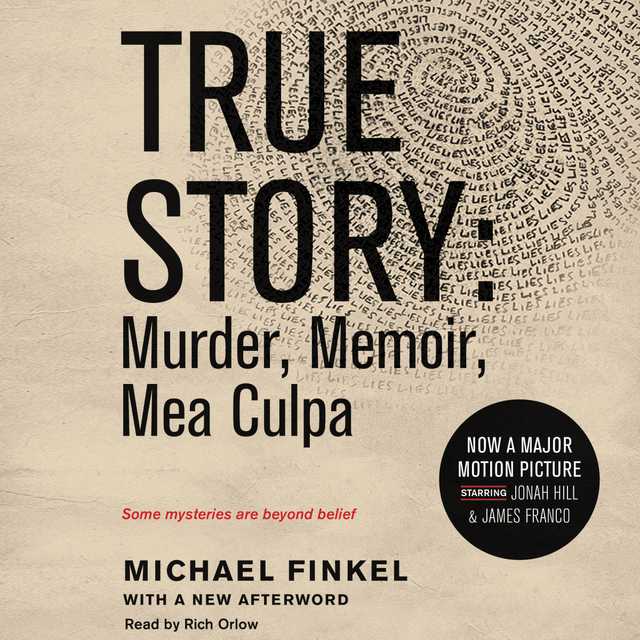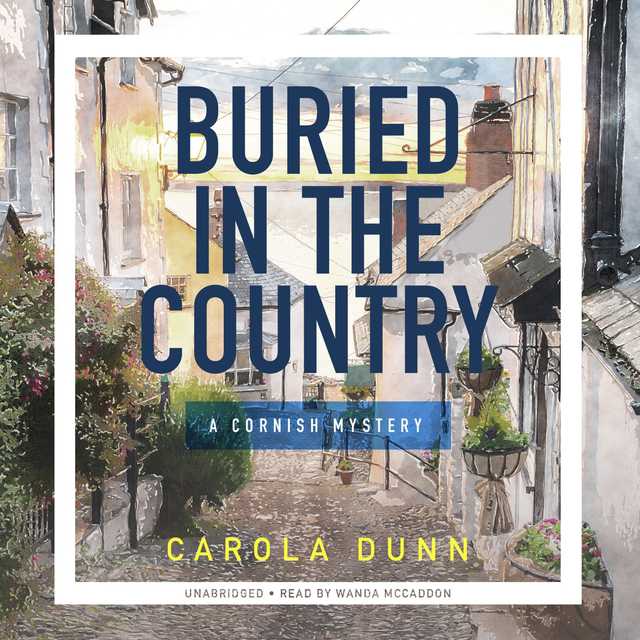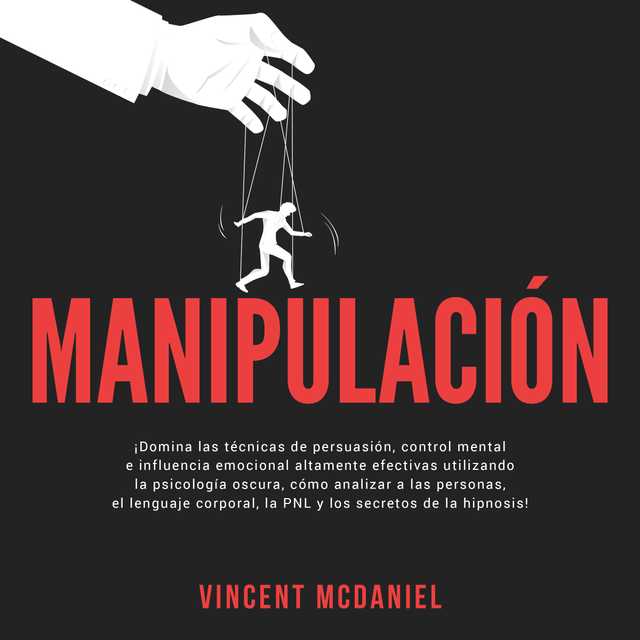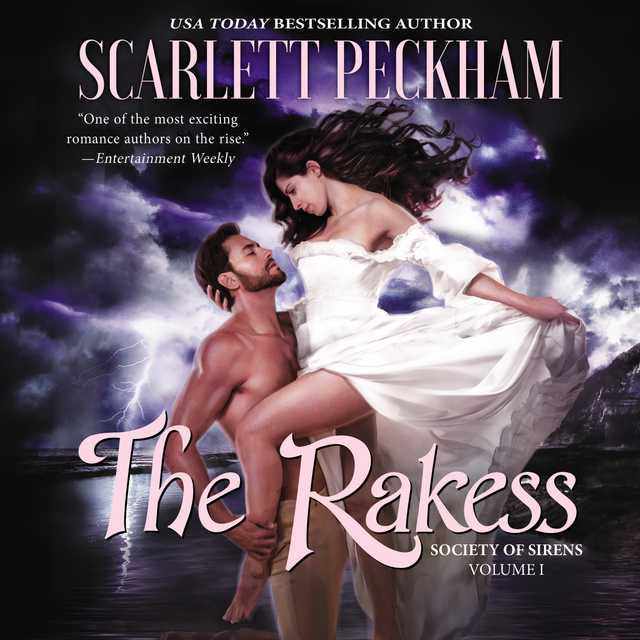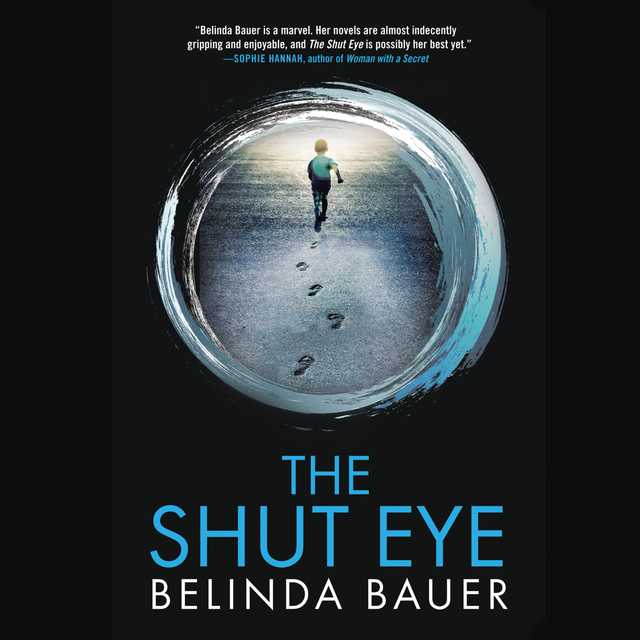True Story tie-in edtion Audiobook Summary
Now a Major Motion Picture Starring Jonah Hill & James Franco and Distributed by Fox Searchlight Pictures
When New York Times reporter Michael Finkel meets accused killer Christian Longo-who has taken on Finkel’s identity-his investigation morphs into an unforgettable game of cat and mouse. True Story weaves a spellbinding tale of murder, love, deceit, and redemption, following Finkel’s relentless pursuit of the shocking truth.
Other Top Audiobooks
True Story tie-in edtion Audiobook Narrator
Rich Orlow is the narrator of True Story tie-in edtion audiobook that was written by Michael Finkel
Michael Finkel has written for National Geographic, GQ, Rolling Stone, Esquire, Vanity Fair, the Atlantic, and the New York Times Magazine. He lives in western Montana.
About the Author(s) of True Story tie-in edtion
Michael Finkel is the author of True Story tie-in edtion
More From the Same
- Author : Michael Finkel
- The Stranger in the Woods
- The Art Thief
- Publisher : HarperAudio
- Abraham
- American Gods [TV Tie-In]
- Dead Ringer
- House of Sand and Fog
- Prey
True Story tie-in edtion Full Details
| Narrator | Rich Orlow |
| Length | 10 hours 14 minutes |
| Author | Michael Finkel |
| Category | |
| Publisher | HarperAudio |
| Release date | April 07, 2015 |
| ISBN | 9780062414120 |
Subjects
The publisher of the True Story tie-in edtion is HarperAudio. includes the following subjects: The BISAC Subject Code is Biography & Autobiography, Personal Memoirs
Additional info
The publisher of the True Story tie-in edtion is HarperAudio. The imprint is HarperAudio. It is supplied by HarperAudio. The ISBN-13 is 9780062414120.
Global Availability
This book is only available in the United States.
Goodreads Reviews
Sam
April 26, 2018
It’s fair to say that Michael Finkel had a pretty dramatic 2002. He went from being an award-winning journalist working at the prestigious New York Times to a publicly disgraced pariah whose career was suddenly in the shitter! How? In a story about child slavery on West African cocoa plantations, he had tried to pass off a composite character as a real person and got found out. Then, in a call from an Oregon paper that he assumed was about his scandalous breach of journalistic ethics, he was asked about the murders of a woman and three children committed by New York Times journalist Michael Finkel! Whaaaaaaat?!The old adage “truth is stranger than fiction” certainly applies to this book! True Story is the bizarre and thoroughly compelling account of how Michael Finkel fell from grace and then immediately got wrapped up in the case of Chris Longo, the young Jehovah’s Witness who strangled his family in December 2001, fled to Mexico, where he told people that he was Finkel, before being caught by the FBI and brought back to the States to face justice. The book is an original blend of memoir and true crime masterfully written in the nonfiction novel style pioneered in Truman Capote’s In Cold Blood. Finkel’s scandal/confession/mea culpa though, while interesting in itself and adding a unique dimension to the narrative, only takes up a relatively short part of the book as it could be covered much more succinctly than Longo’s crimes, the latter obviously being the main draw anyway. I can see why it was included as both Finkel and Longo are revealed as liars albeit to very different degrees. Finkel’s lies were minor and benign and he’s clearly learned from his mistakes while Longo’s lies led to the deaths of four people. Finkel’s portrait of Longo is utterly mesmerising. A charming and likeable man with a magnetic personality, Longo is also a narcissistic pathological liar who is acutely sensitive to how people perceived him – he had to look like a success to everyone, especially his wife Maryjane – with a complex about his intelligence (though the reader can see his limitations from the direct quotes from his letters showing misspellings, poor grammar and a pretentious use of complex words to impress his audience). Longo was completely incapable of living within his means. Like a car crash in slow motion, you can’t turn away as his failing construction company’s finances and his own out-of-control spending leads him to compound lies with more lies before escalating to stealing cars and counterfeiting cheques. Things get worse and his behaviour becomes more erratic: he cheats on his wife, the pressure of constantly hiding the increasing chaos from family and friends begets more lies, more theft, more fraud, causing him to up stakes and flee with his family across America, desperately trying to stay one step ahead of creditors and law enforcement… until it finally all fell apart and overwhelmed him. Longo on the stand during the trial is the most gripping section as we see his true nature emerge. I found the unvarnished audacity with which Longo brazenly lied to be completely breathtaking, revealing himself to be this irredeemable, warped, almost inhuman creature. Not just during the trial but afterwards too, the way he continued trying to futilely manipulate Finkel and reality with more and more lies, despite their contradictions. There wasn’t much I disliked about the book but it definitely dragged a bit in the middle. There’s a part where Finkel and Longo fall out and waiting for Finkel to win back Longo’s favour was tedious. And, while the final months leading up to the murders was entrancing, a lot of Longo’s bio was boring – his courtship with Maryjane, building his business, his everyday life; very banal stuff. Otherwise, True Story was an excellent and remarkable read - a morbidly fascinating and memorable tale of a deeply disturbing criminal, a horrific crime and the flawed but penitent journalist documenting it all who was inadvertently caught in the maelstrom. True crime fans will love this and I can easily see this becoming a classic of the genre up there with In Cold Blood.
Sarju
March 29, 2015
Omg! What a book! I picked this book because I saw the preview of the movie.Since it is based on true story I wanted to understand the story before it hits in the movie theater . I started reading the book three days ago and could not rest until I finished it. This story is about a con man who is convicted of murdering his whole family, who performed many illegal work and impersonated a real New York Times journalist, Michael Finkel.This is very interesting memoir from of the writer who falls from his own grace of journalism for falsifying a headline story and his a year long correspondence with the con/narcissists Christian Lango and their weird friendship.Finkel does a good job on acknowledging his short coming and his embarrassment as a journalist in an honest way in this book. I felt his writing style of building up the storyline was great in making the reader stop and wonder, what the heck is wrong with these two people. I felt he worked really hard to find a way to comeback as a writer.Also,this story is about husband and wife relationship and family members, lies and deceits, what drives people to do illegal work and continuously repeat over and over again. Overall, I am happy to see Finkel's life back as a writer. Every person should get a second chance.
Jennifer
March 14, 2014
I don't think I could accurately estimate the percentage of time I spent with my mouth hanging open or the number of times I exclaimed, out loud, "Oh, my God!" while reading this book. The sheer audacity and calculated rationalizing of Chris Longo -- the convicted murderer around whom this story revolves -- are at once both mesmerizing and horrifying."True Story" is the perfect title for this book, wherein the author struggles with the honesty/dishonesty of his subject, even as he comes clean about his own journalistic misdeed. I appreciate Finkel's sharing of his own circumstances, with a detailed explanation of how he came to be fired from the New York Times Magazine, rather than offering excuses and justifications for his behavior.According to Longo, he and Finkel are both liars, almost brothers in their deception -- partially owing to the coincidence of Longo having assumed Finkel's identity while he was on the lam in Mexico. As Longo keeps spinning his yarns to Finkel in long letters, over the phone, and in prison visits, he never stops offering additional versions of the truth to convince Finkel of his sincerity. Chillingly, toward the end of the men's association, Longo comments that it took, "two liars to make two people turn to a path of honesty." But what is honesty? Based on Longo's behavior and history, it seems that "truth telling" may be whatever partial, rationalized fiction will cast the narcissist in the best light or allow him to feel morally justified.
Diane
April 10, 2017
So, I started with The Stranger in the Woods, then backed up to read this one. Another fascinating story that I couldn't put down. Truth truly can be stranger than fiction. The utter audacity of Chris Longo boggled my mind. That he could murder his family yet carry on with his dramatic charade is mind boggling. After murdering his family, Longo impersonates Michael Finkel during his Mexican "vacation". The real Finkel had just been fired from the NYT for making a composite character and carelessly misidentifying a picture. (BTW, I am a total fan of this author who very clearly and without excuses explained why he was fired and took total responsibility for his missteps. He deserved this new project which came along at the exact right time.)Many conversations and letters between Finkel and Longo are shared. If you just like to cut to the chase, you're not going to like this amount of detail. I was pleased to read and form my own opinions about Longo's mental state and actions. He was a liar, manipulator, thief, and murderer. Yet his unmistakeable charisma and good looks allowed him to get away with much more than the average person. He could look someone in the face and lie to them repeatedly. Once caught, he had no plan other than violence. My heart broke for his wife and children. As the omnipotent reader, I wanted to warn them to run fast and far. I did believe that his wife gave him far too many chances and their Jehovah Witness beliefs clouded her vision.I did not see the movie version of this story as I enjoy every word that Finkel writes. Perhaps that's a slight exaggeration but I will let it stand.
Juletta
July 14, 2017
I will admit, I watched the movie first and loved it, so I decided to check out the book. I loved it too. It was so well done and easy to follow. This is a crazy story but worth the read.
Bonnie
September 14, 2014
Finkel is a disgraced journalist whose own hubris led him to lie about one of his stories about child slavery in Africa. Longo is a disgraced husband and father whose own narcissism led to the murder of his wife and three children and subsequent identity theft of Finkel (in name only, as an alias). The two strike up an unlikely and tenuous friendship when Longo is arrested, and each uses this "friendship" to their own advantage. The result is an interesting study in the line between ego and personality disorder, and coping mechanisms we use to save face and deal with the consequences of our actions.While one would assume Finkel holds the cards in their arrangement, it eventually becomes clear how he was used by Longo from the very beginning. Finkel's own introspective study and acceptance of his role in his downfall, both personally and professionally, provide an interesting mirror to that of the ultimate narcissist, a man so consumed with his outward appearance and fantasy life that he murdered the only people on the planet who actually loved him unconditionally.
Erika
August 25, 2013
I wanted to not like this book, really, I did. What's to like about the story of a husband brutally murdering his wife and three small children, especially when that story is told by an investigative reporter fired from the New York Times for falsifying details of a cover story? And yet, there is no denying that Michael Finkel wrote a page turner here, that's riveting precisely because this is the meeting of two, in the end very similar narcissists. Because if there is one thing Finkel does in telling Chris Longo's story, it is expose himself. This is a fascinating account of what two men, primarily obsessed with themselves and their own status and reputation call "friendship", but what really turns out to be a cat and mouse game, where as the reader I couldn't be sure who was using whom and for what purpose. Sadly, the truth about what exactly happened to Longo's young family never emerges, and if you're looking for answers as to why this tragedy occurred, this is not the place to find them.
Dennis Littrell
July 26, 2019
Brilliantly done, but unsettlingI found this fascinating. I stayed up until two o'clock in the morning to finish it. It is a true crime story written in a clear, elegant style. Every sentence is polished, and every sentence is planned and placed in exactly the right place. There is no obvious striving for effect, no lurid prose, no fancy writing. Michael Finkel employs what George Orwell once called the invisible style. The writing is so unobtrusive, so deliberate in not calling attention to itself that what the reader experiences is the story itself, pure and simple. Or stories. The book is like a film or a commercial novel in that there is a main plot and a subplot. The main plot is the story of Christian Longo who murdered his wife and three children and then ran to Mexico where he pretended to be Michael Finkel, ace reporter for the New York Times. This was a startling coincidence because Finkel had just been fired from the Times for falsifying a story about cocoa plantation "slaves" in West Africa. He was disgraced and fallen from the pinnacle of journalistic prestige. That is the subplot. Both stories are interwoven together in a masterful way. And the sequence of events is presented in a dramatic--not a strictly chronological--way so that the tension is maintained and the reader is led to eagerly turn the pages.The overall story began when Finkel found out about Chris Longo impersonating him. Struck with the coincidence, he felt compelled to know more about Longo and why the accused murderer took on his name. He contacted Longo and worked hard to establish rapport and a friendship. His motive was to get as much information from Longo as he could in order to write a book. The book would fuse the story of his disgrace with that of a man who had murdered his family. The thread that ties the stories together is not just the initial coincidence but an obsession with honesty that haunted both men and the obvious lack of honesty that they both practiced. Both Finkel and Longo strove again and again to come completely clean about what they had done and what they were doing while using each other under the guise of friendship. Longo used Finkel as somebody to talk to (he had been isolated from the other prisoners and had almost no contact with anyone other than his lawyers) and as a sounding board for his defensive strategy. Finkel used Longo as a source for a story that would restart his career. As Finkel makes vivid, both men were more than a little desperate.At one point Finkel gives part of the voluminous correspondence he had with Longo to three shrinks. They conclude that Longo has a narcissistic personality. He may indeed be narcissistic, but more to the point, Longo is a psychopath. He has all the classic features: a charming personality; a behavioral record of lies and thefts and murders; a grotesque sense of ultimately caring about nobody but himself; and finally an ability to be completely without remorse and able to party after his crimes, as he did in Mexico. Ironically, I think it is Finkel who has at least a touch of the narcissistic personality. We can see this in his tendency toward an exaggerated sense of his own importance, first in imagining that the world would be all that interested in his story (ah, but he made the world interested by his skillful writing) and in this from page 267 (he's talking to Longo's lawyers who want ideas for Longo's defense): He writes, "I felt, at that moment, as though Longo's life was in my hands--that if I said the right thing, he'd be spared the death penalty." We can also see this in the tremendous amount of energy Finkel put into researching and writing this book. He desperately wanted to regain his reputation and to be regarded again as a top flight journalist.Both men are caught in a moral confusion about lies and honesty, Longo because he's a psychopath who doesn't understand how people can be so upset about lying since it would seen to be the natural thing to do if it might benefit you (sociopaths learn at an early age that they are supposed to be remorseful about lying, and that it's bad, but they never really appreciate why, and so they are fascinated with the dynamics); Finkel because as he freely admits has told many lies in his life including the lies that ended his career at the New York Times. Neither has apparently thought much about Emerson's "A foolish consistency is the hobgoblin of little minds." Neither seems to understand that it is not so much the absolute consistency of what you say as it is your motive for what you say and especially how what you say affects others. That is what counts. Most people know this. Furthermore everybody lies at one time or another, but not when bearing witness and not when the lives of other people might be adversely affected.I think what fascinated Finkel about Longo was that he could see in him a caricature of himself; and as long as he could imagine that Longo might not be guilty or as long as he didn't look too closely at the murders, that was tolerable. However after sitting through the trial and hearing Longo's grotesque self-serving lies about the murders and the horrific details, Finkel had to psychologically distance himself from his would-be, partial alter-ego. And rightly so since there is something terribly unsettling about their symbiotic relationship.But in the final analysis I say good for Michael Finkel. This is an outstanding work, a fine addition to a genre I like to call "participatory journalism." What Finkel learned about himself from this chancy venture is possibly as important as what this book has done for his career and for his self-esteem. --Dennis Littrell, author of the mystery novel, “Teddy and Teri”
Erin
February 03, 2019
Wow! Lately I’ve just been devouring all types of thrillers, especially psychological thrillers, that’s just what I love.. when I came across a list of true crime books. Remembering how I used to enjoy this genre, I looked through a few of them & this 1 sounded pretty interesting. I’m actually shocked at how good it turned out to be! I couldn’t put it down! The author, a newly disgraced journalist, & his subject, a pathological liar & murderer, actually had quite a bit in common! Those parallels are what made the book extraordinarily interesting to me, but the story was compelling on its own as well. You don’t have to be a true crime junkie to “get” this 1.. There’s quite a bit of human nature in there, and how this man reacted to pressure by lying & deceiving, time & time again. This was the authors first book, a venture he undertook at a pivotal time in his own life, so I’m pleasantly surprised to see there have been several others since.. I’ll definitely be looking into those too & I feel excited that now I have this other genre to discover. If anyone has any true crime recommendations, please let me know! & I do absolutely recommend this 1 to everyone, even if true crime isn’t usually your thing.
Lynda
October 14, 2015
I was absolutely mesmerised by this True Story. Couldn't put it down!!
Kelly
December 04, 2014
Such a fascinating story!!
Shreya
May 12, 2021
Possibly my favourite true crime book. Finkel's willingness to make this as personal as it got is incredible. At first, I thought the author's personal story would end up dragging the book down, but it was as riveting as Longo. The pacing here is masterful: extremely intense chunks broken apart by more introspective sections, dragging the tension out. Not a single paragraph is wasted. Finished it in a single 8 hour sitting.
Jennifer
January 03, 2012
This book was recommended to me yesterday, and I finished it today. Obviously, I could not put it down. Literally. This is a memoir sprung from coincidence. The author, Finkel, is exposed for having created a composite character in a story he wrote for the New York Times Magazine, at the exact moment when a man named Christian Longo murders his family, flees to Mexico, and begins using Finkel's identity as a writer for the Times. I was drawn to the story originally for the true crime aspect of it, but I quickly became engaged by the author's tale of his own downfall. In the end, I think this is the truly remarkable part of the book. The author was just hitting his stride as a journalist when he made the serious mistake of lying within an article about child slavery and poverty. He does not sidestep his mistake. In fact, he is so forthright about his own deceptive behavior, it is at times physically uncomfortable. In a book with several moments of high tension, nothing equals the description he gives of finally alerting his editors at the Times to the fictional aspect of what had been a well-received article. My stomach dropped along with his as he was marched across the eighth floor of the Times building to the editor-in-chief's office, where he was summarily fired. Finkel is also frank about the way in which he used the Longo connection to rebuild his writing career, and why ("Longo was the only person in my life I felt morally superior to. . . .") But even though the relationship between the two men was somewhat symbiotic (just as Finkel was using Longo, Longo needed the connection to the outside world that Finkel provided), it evolves to a surprising extent. Structurally, Finkel weaves his story with Longo's in such a way that the reader can't help but notice parallels between the two downfalls, despite the cavernous differences between the two men and their transgressions. It's tempting to dismiss the friendship Finkel forges with Longo as purely self-serving, a conclusion that could be bolstered by Finkel's sudden realization, during Longo's trial, that he actually despises this man who murdered his family. How convenient, one might think, that Finkel pretends to be a friend to Longo long enough to get the story but then declares his hatred of him at the last minute, to avoid appearing like an ally of a monster. But Finkel is so painstakingly careful to acknowledge the self-serving aspect of his friendship with Longo, both in the book and to Longo directly, that the reader sees beyond that aspect of it, or at least recognizes that however flawed, the men's friendship was mutually beneficial, too. In the end, it's the honesty of this book about deceit that got me. When Finkel starts drawing his own conclusions and lessons in the final chapters, I really felt like I'd reached them too. "My year with Longo made me see how a person's life could spiral completely out of control; how one could get lost in a haze of dishonesty; and how these things could have dire consequences." And when Finkel offers his apology to the Times for his own deception, I found myself choked up at the sincerity of it. I suppose that's largely a tribute to how thoroughly we are allowed to live inside his own mind, with his own regret. But it's also tied up in the stunning portrait Finkel delivers of Longo, as pathological a liar as one can imagine. We learn that there are different kinds of deception, and that all acts of contrition are not created equal.
Amy
March 25, 2017
I could not put it down. It is Saturday and there are so many things I should be doing, but I have sat, almost frozen in my comfy chair - turning page after page. This story is one that will stay with me for a while.
Rachel
February 24, 2017
To be honest, I almost DNFed this book at first. I'm so glad I didn't!So, quick plot summary: Christian Longo, a man accused of killing his entire family, flees to Mexico and takes on the identity of Michael Finkel, a writer for the New York Times. Michael Finkel, however, is facing some rough times of his own. At the same time Christian is in Mexico, Michael is hiding out in his home, waiting for the Editor's Note to be published that will announce his termination from his position with the Times. As he is waiting, Michael receives a phone call from a reporter at the Oregonian, telling him about the now convicted murderer that was using his identity. Michael goes to meet him, and this story tells the tale of their year in contact and the true story of Christian's deeds.This took me a long time to get into. The beginning is very dry since it's just background information and establishing characters. However, once Christian's life story began, I was hooked. Christian is an interesting man with a bad habit of lying, and I spent a lot of time trying to find the lies myself before Finkel pointed them out. What bothered me though was at one point, Finkel admitted that he liked to lie too, going into a detailed paragraph about his lying habits and tendencies. That made me question his reliability as an author since he opened this book by saying everything in it was true. Nevertheless, this story was gripping. Christian's life was a wild ride, even before the murders occurred. I don't know what I can reveal without spoiling anything, but Christian and Michael were both very interesting characters in this story.The relationship between Christian and Michael was amazing too. Throughout the story, you see a bond form between them, with Michael talking to Christian about his relationship with girlfriend Jill and Christian telling him about the fun things he and his family used to do together. They seemed like they had been friends for years, when in reality they only spent one year together. But looking deeper, you can see Michael's feelings begin to change when the trial begins. Overall, this book was captivating, and although I didn't love every second, I was definitely invested. Highly recommend.
Ylenia
December 25, 2017
2017 was definitely the year I fell in love with true crime! This was a Christmas gift that came early & I devoured it on Christmas Eve & the 25th. True Story is part memoir, part story of a murderer: Christian Longo. As it happened with other true crime novels I've read in the past, there was some type of connection between the author & the murderer; in this case Longo impersonated Finkel during the time he escaped in Mexico after the crime & then they got in touch. Longo was an interesting person to read about, mostly because he lied during his entire life. The author, too, was caught lying in one of his articles & was then fired by the Times. During the entire book I was questioning every single thing Longo said. There's no way to know what really happened on the day he decided to kill his family, because he changed his story a couple of times. But knowing the author lied too in his past, about important things, made me question things he said as well.There was a bit of an introduction, the memoir part, where the author talked about his life & then the book heavily focused on Longo's life. I wished the parts about the trial were longer, though, since it's something I like to read about.Overall: a very interesting book.
Most Popular Audiobooks
Frequently asked questions
Listening to audiobooks not only easy, it is also very convenient. You can listen to audiobooks on almost every device. From your laptop to your smart phone or even a smart speaker like Apple HomePod or even Alexa. Here’s how you can get started listening to audiobooks.
- 1. Download your favorite audiobook app such as Speechify.
- 2. Sign up for an account.
- 3. Browse the library for the best audiobooks and select the first one for free
- 4. Download the audiobook file to your device
- 5. Open the Speechify audiobook app and select the audiobook you want to listen to.
- 6. Adjust the playback speed and other settings to your preference.
- 7. Press play and enjoy!
While you can listen to the bestsellers on almost any device, and preferences may vary, generally smart phones are offer the most convenience factor. You could be working out, grocery shopping, or even watching your dog in the dog park on a Saturday morning.
However, most audiobook apps work across multiple devices so you can pick up that riveting new Stephen King book you started at the dog park, back on your laptop when you get back home.
Speechify is one of the best apps for audiobooks. The pricing structure is the most competitive in the market and the app is easy to use. It features the best sellers and award winning authors. Listen to your favorite books or discover new ones and listen to real voice actors read to you. Getting started is easy, the first book is free.
Research showcasing the brain health benefits of reading on a regular basis is wide-ranging and undeniable. However, research comparing the benefits of reading vs listening is much more sparse. According to professor of psychology and author Dr. Kristen Willeumier, though, there is good reason to believe that the reading experience provided by audiobooks offers many of the same brain benefits as reading a physical book.
Audiobooks are recordings of books that are read aloud by a professional voice actor. The recordings are typically available for purchase and download in digital formats such as MP3, WMA, or AAC. They can also be streamed from online services like Speechify, Audible, AppleBooks, or Spotify.
You simply download the app onto your smart phone, create your account, and in Speechify, you can choose your first book, from our vast library of best-sellers and classics, to read for free.
Audiobooks, like real books can add up over time. Here’s where you can listen to audiobooks for free. Speechify let’s you read your first best seller for free. Apart from that, we have a vast selection of free audiobooks that you can enjoy. Get the same rich experience no matter if the book was free or not.
It depends. Yes, there are free audiobooks and paid audiobooks. Speechify offers a blend of both!
It varies. The easiest way depends on a few things. The app and service you use, which device, and platform. Speechify is the easiest way to listen to audiobooks. Downloading the app is quick. It is not a large app and does not eat up space on your iPhone or Android device.
Listening to audiobooks on your smart phone, with Speechify, is the easiest way to listen to audiobooks.

